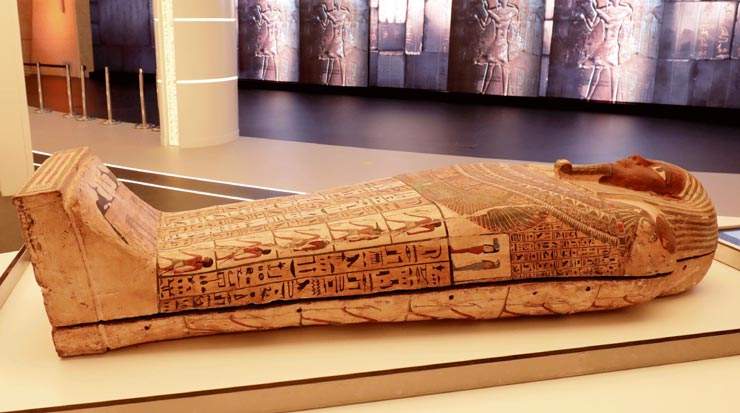The coffin of priest Psamtik, ‘the son of Pediosir’ is one of the colored wooden coffins that were recently discovered in the area of Saqqara by the archaeological mission of the Supreme Council of Antiquities.
The coffin is decorated with a large necklace that ends with the heads of a falcon, with the goddess of sky ‘Nut’ appears spreading her wings, carrying the two feathers of ‘Maat’ (the goddess of truth and justice).
The center part of the coffin is decorated with religious incantations. Around its sides are two rows of ‘Was’ deities holding a scepter in her hands. At the lower part of the coffin, two figures of the god of afterlife Anubis appear above his cottage standing in front of the deceased.
A group of modern replicas of King Tutankhamun have also arrived to be displayed at Egypt pavilion.
The collection of King Tutankhamun replicas include his golden mask, his own sarcophagus, the ‘Ka’ guardian statue of the king, the special festive chair as well as the golden king's throne.
The notion of coffins in the ancient Egyptian civilization is of great significance from a religious and symbolic point of view, as it is the most important phase in the burial process and the place where the body of the deceased is prepared for the process of judgment in the afterlife.
The transfer of these artifacts comes to assure the keenness of all Egyptian state agencies to maximise all their capabilities to grant the success of the Egyptian participation in Expo Dubai 2020 and to ensure that Egypt’s pavilion reflect the significance of the country’s role and leadership as one of the most top tourist attractions and archaeological destinations in the world.









